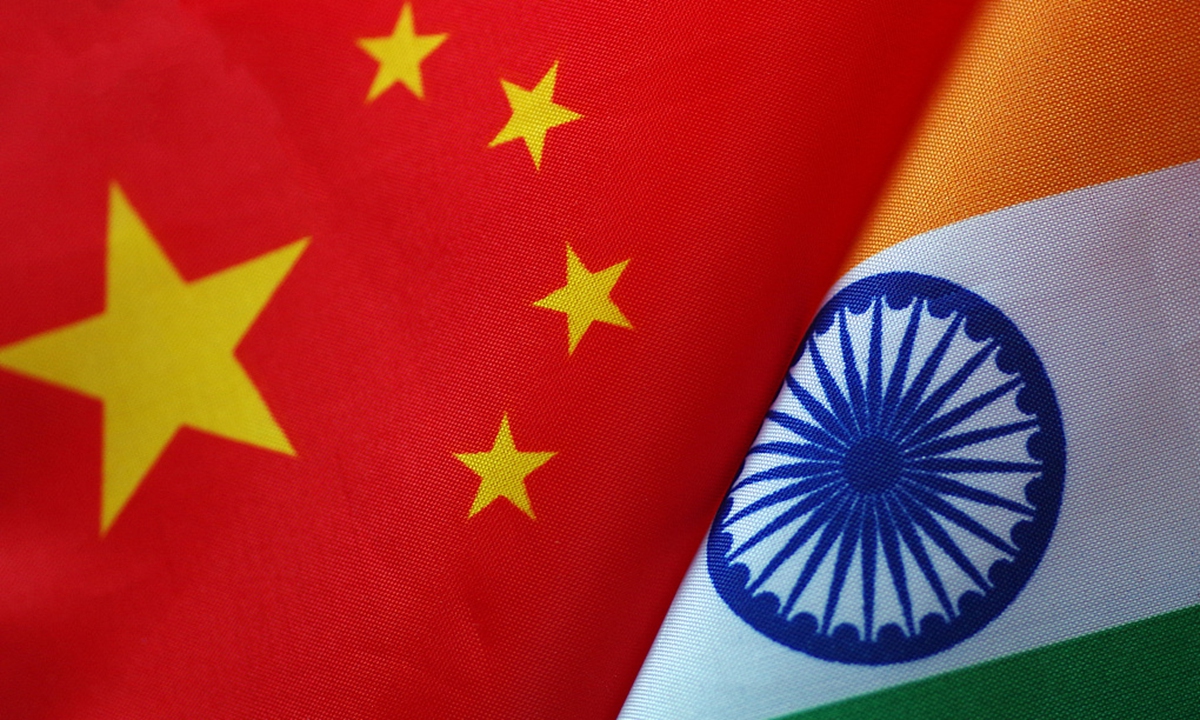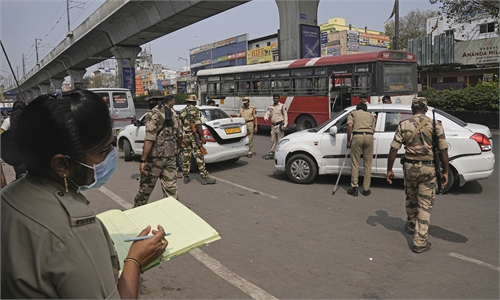
China India. Photo: VCG
India has once again made dangerous and self-deceptive statements regarding the China-India border dispute. India's Foreign Ministry stated on Tuesday that China was making "absurd claims" over the so-called Arunachal Pradesh (China's Zangnan area), saying that the so-called Arunachal Pradesh will always be an "integral and inalienable part of India."
The latest remarks from India followed China's protest over Prime Minister Narendra Modi's visit on March 9 to the area of Zangnan, which is illegally occupied by India. During his visit, he attended the inauguration ceremony of the Sela Tunnel and other projects. China strongly deplores and firmly opposes Modi's visit to the East Section of the China-India boundary.
Just nearly a month after the 21st round of the China-India Corps Commander Level Meeting, where both parties agreed to maintain peace and tranquility in the border areas, India has quickly reneged on its commitments, acting contrary to its previous statements and continually stirring up trouble at the border. Earlier this month, India deployed an additional 10,000 troops along the border to flex its muscles. India's actions have undermined the hard-won peace, demonstrating a lack of sincerity in resolving the border issue, said Qian Feng, director of the research department at the National Strategy Institute at Tsinghua University.
India's provocations over the China-India border issue only complicate the resolution of the issue, disrupting the situation in the border areas and intensifying the confrontation between the two countries. Behind this is India's calculation.
On the one hand, with the upcoming elections in India, the "China threat theory" has become an easy tool for Modi and his Bharatiya Janata Party to stir up nationalist sentiments to garner votes. Over the years, Indian politicians have repeatedly politicized the China-India border issue for domestic political mobilization, aiming to show a tough image on national security issues during election campaigns.
On the other hand, India seeks to foster domestic cohesion by creating an external adversary such as China, Long Xingchun, a professor at the School of International Relations at Sichuan International Studies University, told the Global Times.
As a nation with diverse ethnicities, languages and religions, many Indians have a relatively weak sense of national identity; therefore, to consolidate national unity and forge a "national identity," India heavily hypes up external threats, particularly Pakistan and China, added Long.
India's choice of timing was intentional, said Long. Recently, the Taiwan Straits have seen undercurrents due to a recent incident in waters near Kinmen that led to the death of two people on a mainland fishing boat. In addition, tensions in the South China Sea have sharply intensified. India may want to take advantage of the situation.
However, India should note that no actual conflict has erupted in the South China Sea or the Taiwan Straits. If India continues to provoke excessively over the border issue, it will be detrimental to its interests. China hopes to peacefully resolve border issues with India through negotiations to maintain peace and stability at the border. However, on territorial issues, China will firmly defend its territorial integrity and will not be intimidated or coerced by any force. Playing the border issue card during election season to stir up anti-China sentiment is an opportunistic mentality that risks India's own national interests.
Experts predict that the border dispute is unlikely to find a resolution in the short term, and while major confrontations are not anticipated, minor frictions may occur. China's position on the China-India border issue has always been consistent and clear. The border issue is a historical legacy and not the entirety of China-India relations. It should be placed in an appropriate position in bilateral relations and resolved through peaceful and friendly negotiations to find a just, reasonable and mutually acceptable solution. India would be wise to avoid using the "border issue card" during the election season.


